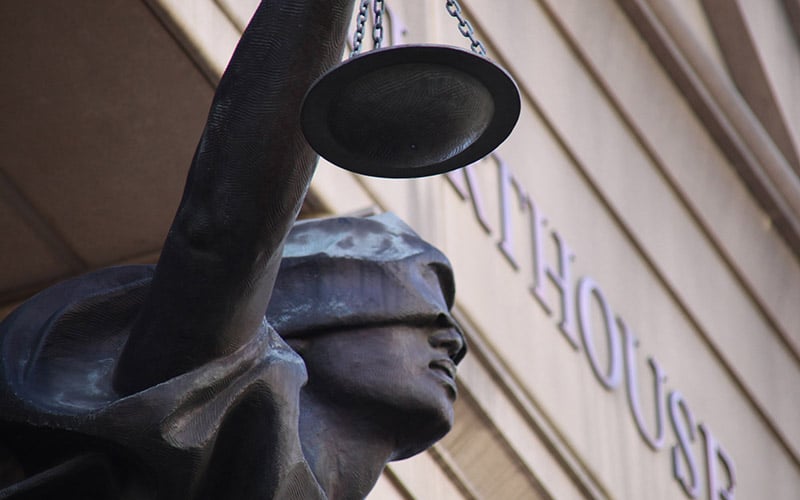WASHINGTON – A federal appeals court on Tuesday upheld the conviction of a spotter for a group of border drug smugglers, rejecting his argument that his confession was coerced and the government had not presented enough evidence for a conviction.
A three-judge panel of the 9th U.S. Circuit Court of Appeals said there was sufficient evidence to convict Abelardo Niebla-Torres – found hiding in camouflage on a mountaintop with binoculars, radios and other paraphernalia consistent with typical drug-running endeavors.
“Any rational trier of fact could have found beyond a reasonable doubt that Niebla knowingly entered into an unlawful agreement to serve as a scout for marijuana traffickers,” said the opinion by Judge Morgan Christen.
Attorneys for Niebla and for the U.S. Attorney’s Office of Arizona both declined to comment on the ruling.
The case began on Nov. 27, 2014, when Niebla was arrested by Border Patrol agents with another man camping out on top of Pozo Redondo Mountain near the Ajo Border Patrol station. The area is a smuggling corridor, the court said, with smugglers using the flat terrain of its valleys to carry loads of drugs across the border and into the U.S.
Border Patrol Agent Michael Colella had seen people for several days who appeared to be trying to hide their presence on top of the mountain, which is not frequented by hikers and has a clear view of valleys in the area as well as the Border Patrol station, court documents said.
After Colella and another agent went to the mountaintop and captured the two suspects, they took them to the Ajo station where they were read their rights. Two hours later, Niebla confessed in a recorded interview that he was on the mountain as a scout, helping two groups of eight to 10 drug smugglers with suitcases filled with 20 kilograms of an unknown substance, that he said “must be marijuana.”
Niebla pleaded guilty to illegal re-entry into the country but went to trial on a charge of conspiracy to possess with intent to distribute a controlled substance. He tried to get his confession suppressed at trial, arguing that the agent who took his confession had “primed him for the interview” and “threatened him with seven years’ imprisonment if he did not confess.”
But a magistrate judge said there was no evidence in the tape that Niebla had been coerced and allowed the confession at his trial in U.S. District Court in Tucson. There, the judge said that “being on the hillside as he was, in the middle of nowhere, dressed in camouflage clothes with binoculars, radio, batteries, and a satchel is sufficient evidence” to prove his association with the smugglers, along with the mention of marijuana in his confession.
Niebla was sentenced to nine months in prison and three years of supervised release.
He appealed, arguing that his conviction could not rely on his uncorroborated confession alone. The government must first prove that an actual crime occurred, since no marijuana was found, and show enough corroborating evidence to support the reliability of his confession. He argued that prosecutors had done neither.
But the appeals court said Niebla could be convicted of conspiracy even if no marijuana was found, as long as prosecutors provided sufficient circumstantial evidence. The location in which the spotters were found, the paraphernalia they possessed and the testimony of an expert witness were sufficient to meet that test, the court said.
It noted the expert testimony of Border Patrol Agent Carlos Rochin, who said that items like the binoculars and radios Niebla had at the time of the arrest are typically used by scouts “to observe law enforcement movement and then relay it back” to help smugglers avoid Border Patrol.
In regards to Niebla’s claim that his confession was manipulated and given out of fear, the appellate judges disagreed.
They sided with the lower court’s finding that the recording of the confession sounded “spontaneous and unrehearsed,” and the agent conducting the interview did not yell at or threaten Niebla at all. The agent did not badger Niebla for giving negative answers to leading questions, the court said, calling the confession “inherently reliable.”
